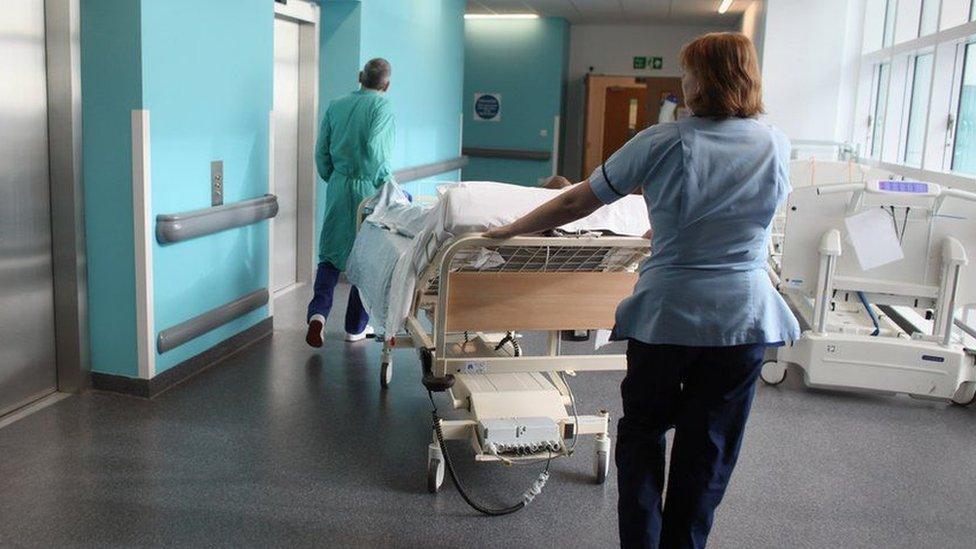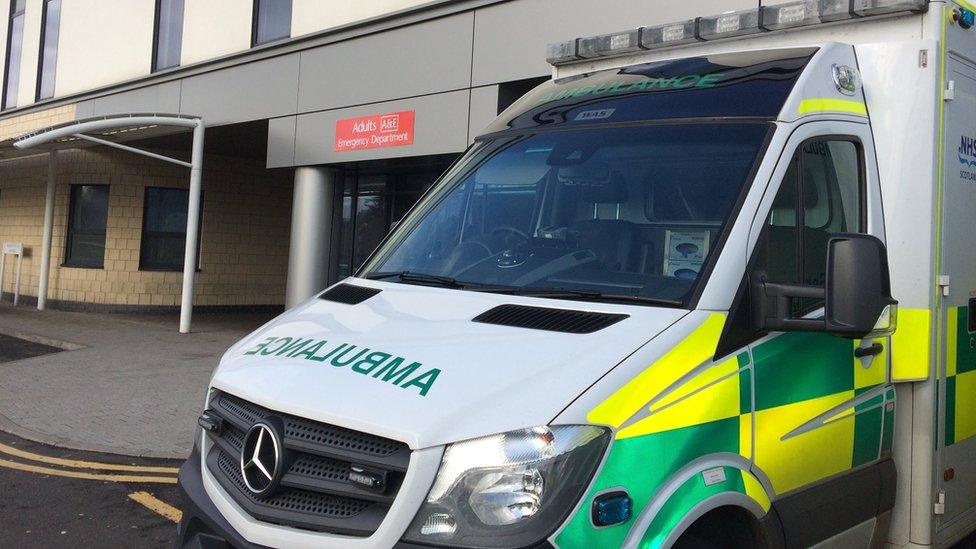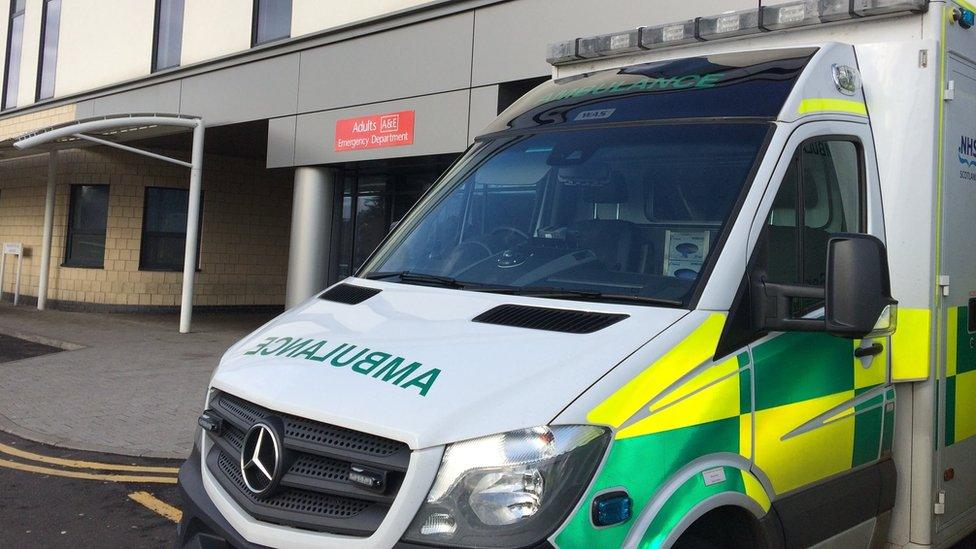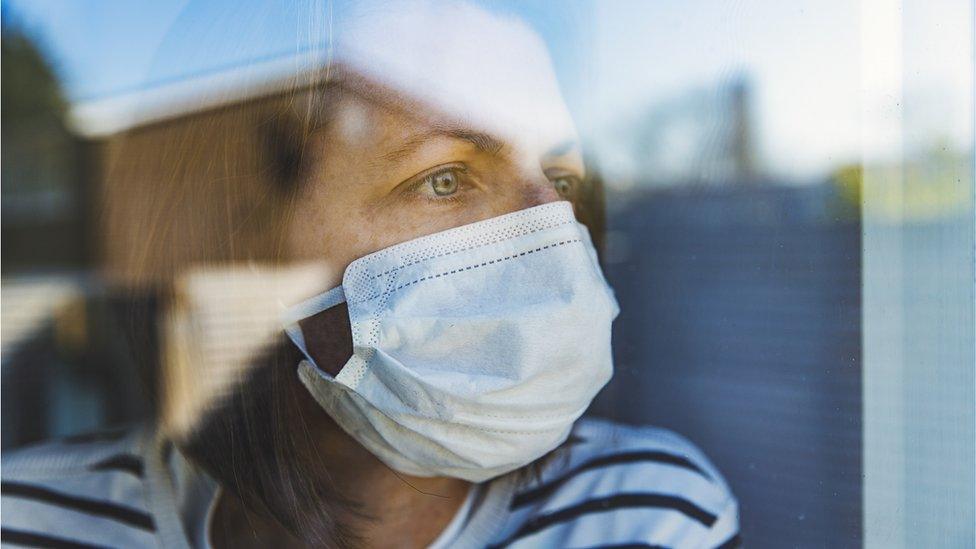Cost of living crisis will pressure NHS this winter - health expert
- Published
Jillan Evans said people who are unable to eat well or heat their homes will be vulnerable to illness
The cost of living crisis will strain Scotland's under-pressure healthcare services this winter, a public health expert has warned.
Jillian Evans, head of health intelligence at NHS Grampian, said people who cannot afford to eat well or heat their homes will be at greater risk of illness.
Ms Evans said she was "very worried" for the NHS in the coming months.
It comes amid fears of a flu outbreak and rising Covid cases over winter.
Last week Scotland recorded its worst ever accident and emergency waiting times.
The Scottish government said hospitals were working under significant strain, as the impact of the pandemic continued to affect services across the UK and globally.
Ms Evans told BBC Scotland that healthcare services were expected to come under further pressure.
"We're worried about people because of the cost of living," she said.
"People who are unable to heat their homes, unable to have food at regular times - all of those people will be susceptible to greater illness.
"That will put a strain not just on themselves but on healthcare services. I'm worried about all of those things."

The Scottish government has come under pressure to make improvements before an expected spike in admissions this winter
Ms Evans said there was also an increased threat of a major flu outbreak, following two years of lockdown measures which kept infections down.
She added: "While we can't say how large the increase in demand for healthcare services there may be this winter, we feel sure that there will be an increase and that's what we're preparing ourselves for now.
"I'm very worried about what the next six months might hold for us."
The public health expert urged those eligible to get a flu jag and asked people to ensure they are up to date with Covid booster vaccines.
Her comments came after Holyrood's Covid-19 Recovery Committee urged the Scottish government to improve public health messaging to those who are most vulnerable to Covid.
The committee said there was "mixed messages" after the highest risk list, formerly known as the shielding list, was ended in May as a result of the vaccination programme and new treatments for Covid.
The committee's report found some high risk people had not been prioritised for vaccines and treatments.
Ms Evans said that while there were people who are "very much still at high risk", for the majority on the list it was no longer needed.
"Their risk is considered to be no greater than that of the general population," she added. "That's what's different now."
Ms Evans said highest risk list could be "stepped up again" if needed.
Scotland's health secretary Humza Yousaf has come under pressure to improve NHS access and A&E waiting times before the expected spike in admissions this winter.
He said last week: "I am determined to improve performance and am working closely with boards on a number of measures to reduce pressure on hospitals."
First Minister Nicola Sturgeon has branded the cost of living crisis a "humanitarian emergency" and announced measures including a rent freeze and an increase in the Scottish Child Payment to help people with rising bills.
Meanwhile, health and social care workers will no longer require weekly tests for Covid as asymptomatic testing pauses from Wednesday.
The four chief medical officers in the UK have agreed it is now safe to halt staff, visitor and carer testing, as well as testing for hospital admissions.
A high uptake of vaccinations has also been credited for the decision.
- Published20 September 2022

- Published22 September 2022

- Published24 September 2022
